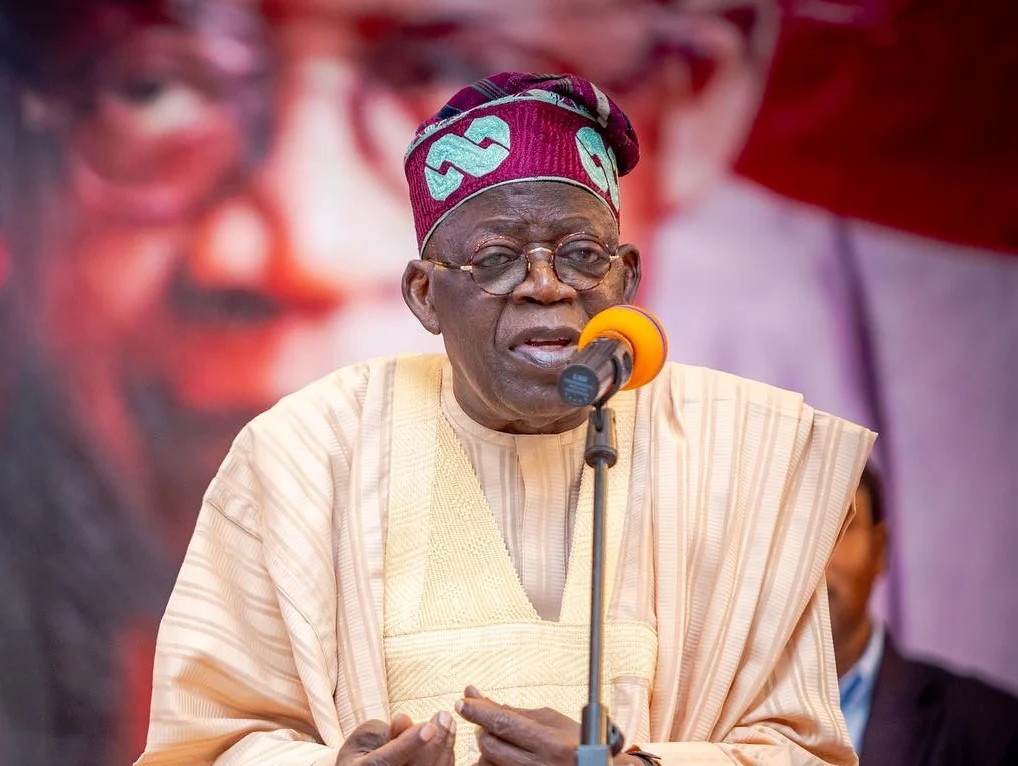Religious identity, Muslim-Muslim ticket, and the 2023 elections
By Prof. Tunji Olaopa I grew up within a cultural context that grounded Ali Mazrui’s triple heritage thesis: that Africa has arrived at a stage where three fundamental cultural influences—Euro-Christian, Islamic and traditional African are locked in mutual relations. This context permitted the mutually beneficial and respectful relationship my great grandfather who was a Christian […]

Bola Ahmed Tinubu
By Prof. Tunji Olaopa
I grew up within a cultural context that grounded Ali Mazrui’s triple heritage thesis: that Africa has arrived at a stage where three fundamental cultural influences—Euro-Christian, Islamic and traditional African are locked in mutual relations. This context permitted the mutually beneficial and respectful relationship my great grandfather who was a Christian and my great grandmother, a Muslim had. It was a mutually reinforcing reciprocity that saw both husband and wife assisting each other’s belief system, and combining the core moral insights of their religions to the moral upbringing of their children.
What I just related is an example from a small corner of the larger Nigerian society, which is replicated in some other village or town contexts all across. The Nigerian polity displays something different, as the current agitation and outcry over the religious affiliations of presidential and gubernatorial aspirants demonstrate.
As 2023 approaches, the political space is already on fire over the religious affiliations of the three presidential candidates and their nominated vice-presidential running mates. For the APC, Senator Bola Ahmed Tinubu has chosen Senator Kashim Shettima, a fellow Muslim. In the PDP, Alhaji Abubakar Atiku, a Muslim, chose Ifeanyi Okowa, a Christian from Delta State. Peter Obi, on his own, picked a northern Muslim as his running mate. This leaves Tinubu with the most troubling Muslim-Muslim ticket. For those who are concerned, especially Christian Association of Nigeria (CAN) and others, a Muslim-Muslim ticket is a slap on the face of Nigeria’s religious dynamics. This dynamic is represented across the entire six geo-political zones of Nigeria, from the South East with an all Christian tickets in all the states, to the North West with all Muslim tickets, and all the other zones with a mixed configuration.
The fundamental question is how religion became such a substantive issue that determines electoral success. This question is all the more so within the vaunted secularity of the Nigerian state. The secular creed not only separates between state and religion, but also denotes religious beliefs and faith as personal and private. The implication of this is that religious belief must not be taken as having any critical role to play in the public sphere where people’s credentials transcend their faith. My credentials as of, say, a neurosurgeon, should absolutely have nothing to do with my faith. Being a Muslim or Christian does not add to the competence I possess in dealing with the human brain. But of course, we know that Nigeria is not really a secular state. Like ethnicity, successive governments have discovered religion as a divisive mobilising weapon. Once the federal government began to subsidise pilgrimages for both Christians and Muslims, religion had escaped the private space into the public for Nigerian politicians, fueled by those who take religion ever so seriously.
The significance placed on religion flies in the face of the most fundamental issue in party politics—electoral victory. Politicians enter into electoral competitiveness to win elections and gain political power. And in doing that, their most significant calculation has to do with what possible political iterations could get them the positions they covet. Religion is just another variable in the mix which does not always count. Thus, if Shettima, for instance, were to be a strong Christian who can deliver the North, Tinubu would still have made that choice. The main issue is the figure of Shettima and his capacity to deliver large number of votes for Tinubu and the APC. The Muslim-Muslim ticket chosen by Tinubu, or the “balanced” ticket of the other two aspirants, are pure political expediency. Politicians want to win elections at all costs. And Tinubu is no less of a politician in this regard; he is in the race to win.
With 2023 looming, and with all the outcries, we really have an opportunity to get our electoral sensibility and the future of Nigeria right. And that means deep reflections on several issues, beginning from the constitutional provision for active secularity in the Nigerian constitution. Similar to so many of its provision, the constitution is contradictory on the issue of religion in public life. While Section 10 states categorically that “The Government of the Federation or of a State shall not adopt any religion as State Religion,” there are also several provisions, under the “Fundamental Directives,” that directs the government to facilitating the enjoyment of religious benefits. Thus, the Nigerian state is not adequately secular in maintaining a strict distance between religion and the state. Of course, secularism itself is under siege even in societies that have secular credentials. That is not to say Nigeria cannot determine her own secular construct in ways that respect her realities.
The second issue is a serious national reorientation on the idea of religion as the care of the soul, rather than as a political positioning. And this requires the attention of the clerics from the major religions. It should be noted that CAN is not innocent in the accentuation of religion into a national issue in the Nigerian polity, and that is most unfortunate.
Continued on www.dailytrust.com
Prof. Olaopa teaches at NIPSS, Kuru, Jos
